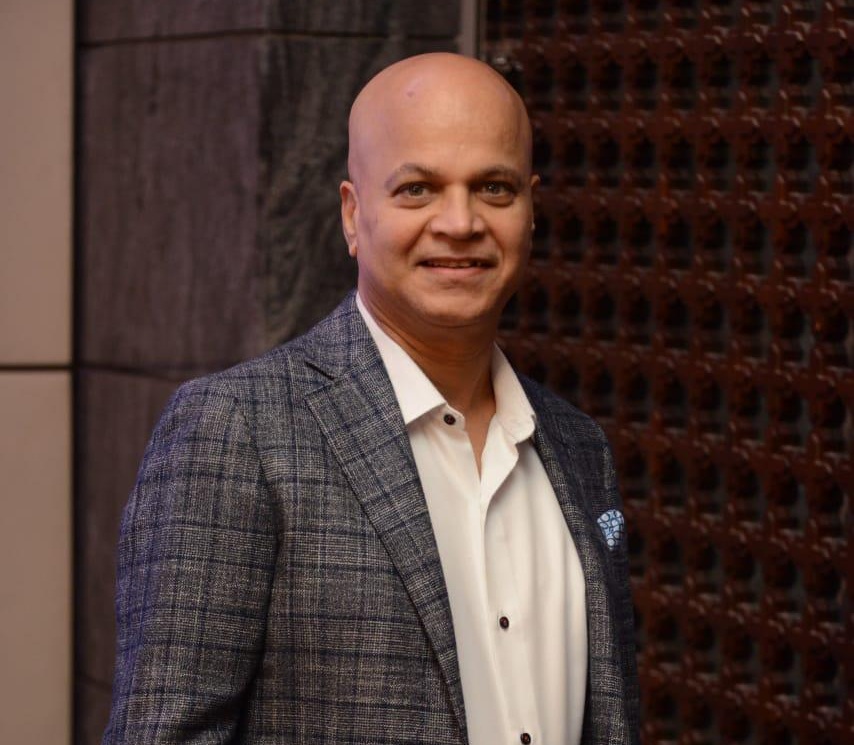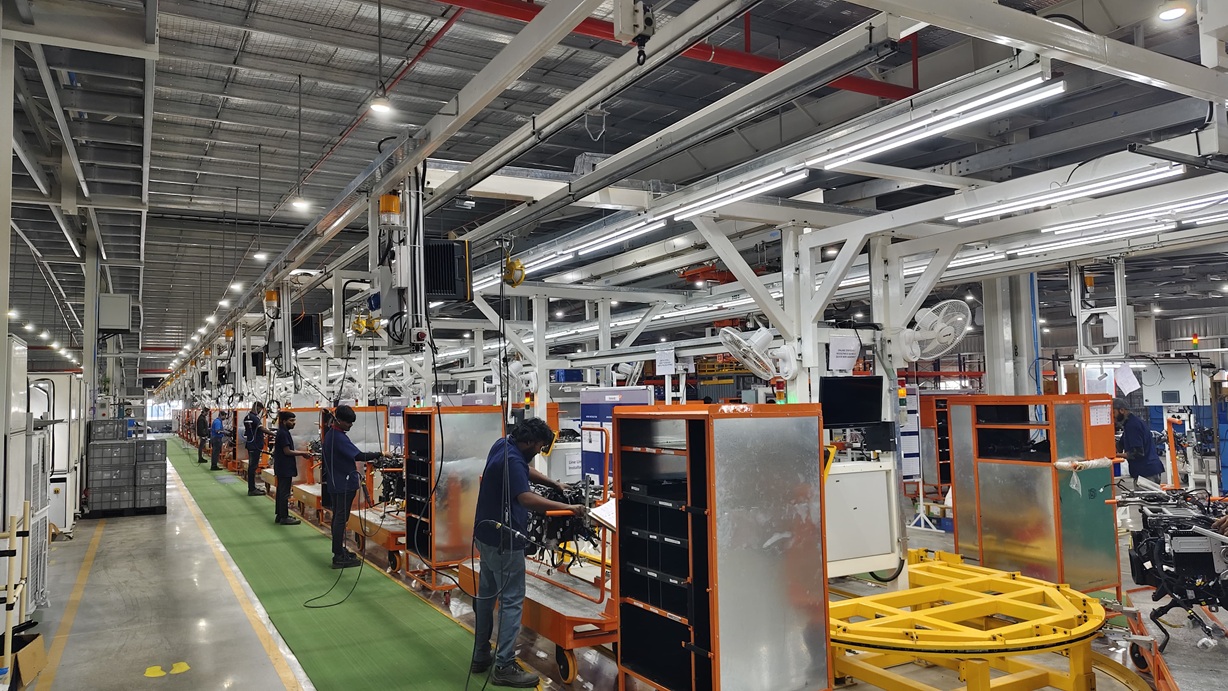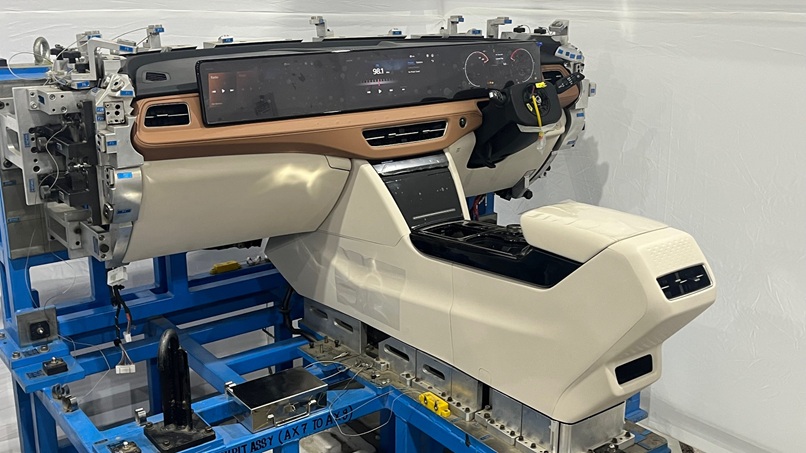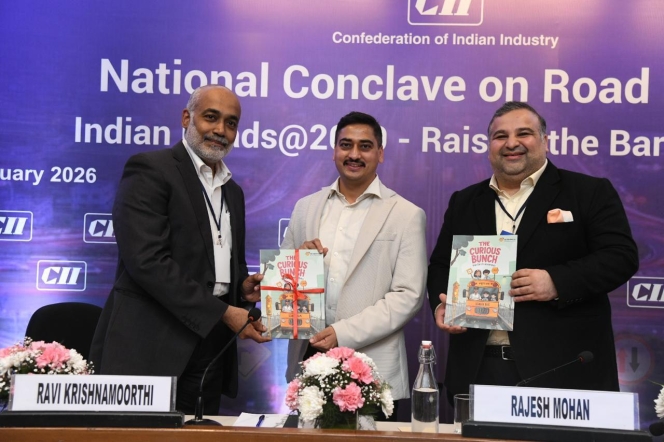
Q: What, according to you, are the skill gaps persist in the automotive industry still and how is ASDC addressing this?
Sanghi: Automotive manufacturers are currently facing several challenges. With increased pressure to meet customer demand for more personalised designs, they are tasked with creating a more flexible production environment, reducing engineering time and costs, and accelerating the market to remain competitive.
With massive technological transformations taking place across the sector, companies need to keep pace with the ever-evolving landscape to meet the ever-evolving demands of modern-day work.
Acquiring new skills is the key to sustain in this dynamic landscape. It is a continuous effort of both the institute and the corporation to fill the skill gap. Although there are programmes, they are not reflecting the change at the same pace as the change seen by the industry.
Companies today need people who can adapt and develop themselves to the changing technology. Whether automotive or otherwise manufacturers have recognised the importance of creating a workforce of intelligent problem solvers. In addition to these, more manufacturers are now focusing on hiring and training talents that can sustain advances in technology and drive investment. We at ASDC are doing a lot of training activities along with our teams of various zones, including holding webinars and launching various courses.
We are also continually training our team members and associates and dealers to do more reviews on the digital platforms or dealers to focus on digital retail; they were not getting used to it.
They preferred to be physically present, talking face to face, but now this lockdown has left no other option but to adopt the digital route.
Q: Customers are well informed now, and they finalise the model and variant even before reaching the showroom. In this scenario, what kind of skills needed for dealerships?
Sanghi: With ever-increasing ways to capture your customers’ attention across multiple channels, a partner specialising in the customer journey can be an invaluable asset to your business.
Considering the experience from the consumer’s perspective allows the dealer to compete with other, less traditional models.
Social distancing will bring dynamic change to the dealership business. No longer will customers feel comfortable walking into showrooms. Now, the reverse will happen, and OEMs and dealers will have to reach out to customers even more. And going digital will help them do just that.
Sales channels, dealers and OEMs per se will have to increase the transparency level dramatically. That’s because customers will now prefer to engage with them virtually, which in turn means there has to be digital.
Various experiences, like test drives of new cars, which has been a very popular method of selling a passenger vehicle, will be a much-less-used tool for sales. Likewise, a physical inspection of vehicles undergoing maintenance will take a backseat, and the OEM/dealer will have to convey images to customers about the work being done, either in real-time or in some other manner.

Q: Would the new trend catalyse unemployment further?
Sanghi: The pandemic has brought forth the concept of work from home to enable social distancing, which earlier would never have been thought to be possible for a vast majority of the jobs. You will need to train them (workforce) on how to use digital tools, and train the entire ecosystem to monitor the efficiency.
The need for top-notch cybersecurity is vital; one has to be absolutely sure that the data is secured and not misused. Data integrity needs to be 100 percent. Organisations will need to upskill existing staff to be digital and tech-savvy. All the while, the focus has to be on the data which is supposed to be the oil of the economy that is secured and owned by the owner, and not someone else.
Q: How do you match the curriculum with the ever-evolving customer needs and changing regulatory environment?
Sanghi: While the automotive industry may be facing some challenges, digital manufacturing and technological progress are enabling automotive engineers to deliver products to market faster than ever before.
This is easing the competitive pressure on car manufacturers, and going some way to fill the void left by the shortage of skilled engineers.
COVID-19 has introduced digitalisation as the key to the future. For organisations and the country, this means a huge opportunity to upskill and reskill our workforce using digital tools. This will not only help the country stabilise manufacturing activities, but will also help to improve the standard of living, that well allows for economic growth.
Q: What are the challenges you face with emerging technology trends like electrified, automated, shared technology as each of these elements needs specialised training supported by adequate infrastructure?
Sanghi: A big change happening because of digitalisation and COVID-19 has just helped increase the focus. The current lockdown has brought the focus on skilling and digitalisation into sharp focus. Smart industrialisation is here to say; one can look at their people’s daily lives, particularly in urban and some parts of rural India, to experience that they are now more reliant on digital tools than they were in pre-COVID-19 days.
While skills shortage is an issue far wider than the automotive industry, reasons can be identified why this sector has a lack of skilled workers. For the manufacturing sector, it means moving from labour-intensive methodologies to automation. COVID has accelerated the growth of the cyber-physical world. India should marry men with the machine to enhance productivity. Highly skewed income distribution and a lack of respect for labour remain a big concern. Lack of respect leads to lower productivity and efficiency, which serve to robs India of a competitive edge.
Q: The technological changes that are coming off late are mostly the result of either legislation or regulation. In this scenario, how do you see ASDC transform in the future?
Sanghi: Demand-driven skilling has been the focus of every industry. At ASDC, we’ve conceptualised the digital platform in such a way that it provides all the information together, at one place. For example, the availability of jobs in a sub-sector, what is the prediction for upcoming job roles and what are the skills in demand. It will provide links to all our partners wherein they can share their projections and find the right candidates.
There have been many modifications to the apprenticeship programmes, and these are rightly intended in making it inclusive. We are happy with the Government making these phenomenal improvements, and we hope the industry members engage more apprentices. For the automotive sector, ASDC is the delivery partner for apprenticeships. We also see a lot of enthusiasm from component manufacturers and dealers to explore apprenticeship as an option to get a skilled workforce.
Q: Today, almost all vehicles, including trucks, are connected in one way or the other. What are the new challenges that emerge out of these connected vehicles? What is the solution from ASDC?
Sanghi: The automotive industry is converging with the information and communication technology (ICT) industry at a rapidly increasing rate. Technology is reshaping the global automotive sector. In the future, cars will become computers on wheels as tech players’ move into the automotive sector to leverage their existing capabilities.
When we are talking about the challenges, it can be the difference in lifecycles in the automotive and the mobile industry is a serious challenge for the future of connected cars. New features, such as operating system upgrades and new applications, are provided almost constantly for the smartphone, whereas car manufacturers work on five-year cycles. The advent of connected cars will dramatically change the dealership model as a whole. Salespeople must plan to spend an hour or more teaching customers how to use their car’s advanced technology.
Also, issues such as privacy, security, the cost of deploying a system, data ownership, driver distraction, and equity must be taken into consideration in the technology of connected vehicles/cars.
 Q: How is ASDC preparing itself to support the maintenance and repair of electric vehicles?
Q: How is ASDC preparing itself to support the maintenance and repair of electric vehicles?
Sanghi: Complex maintenance is one of the most common concerns that affect electric vehicle (EV) adoption. In reality, however, the intervals between each service in an EV are almost the same as for regular vehicles, and those services are usually less complicated. Traditional vehicles have hundreds of mechanical and moving parts, whereas an EV contains far fewer. Parts of an EV are generally easy to replace and don’t wear out as quickly.
The only major “potential” expense in EV maintenance is replacing the battery. As the vehicle reaches 100,000 miles, it may have lost up to 20% of its range.
Some batteries are designed to replace modules in contrast to the whole battery, but it depends on the way the car is made. Although it may take significantly less time to perform a service on an EV, there are other differences in the service process that can affect an OEM’s aftersales business.
We at ASDC have upgraded our training systems to look after the present modes of maintenance.
The way forward is our entire training programme is under review by industry partners. We have expert groups in R&D, manufacturing; they are in the process of reviewing all our occupational standards and upgrading them, not only for the present but also for the future.
Q: What is your view on data storing wirelessly that may affect multi-brand third-party service centres; how do you see ASDC playing a role in this?
Sanghi: Wireless connectivity for the vehicle may pose serious cybersecurity threats to a moving vehicle.
However, the issue of multi-brand third-party service centres, including service aggregator platforms, are here to stay.
ASDC in partnership with some of the industry partners is keen on providing Recognition of Prior Learning (RPL) for existing manpower as well as upskilling training of existing workers through blended digital learning modules for new technologies linked to new norms like BS-VI standards of emission, etc.
Q: What is ASDC’s work on conserving resources like use of remanufactured parts?
Sanghi: All stakeholders, including the current Government, have felt the need for a well-balanced vehicle scrappage policy; we expect to see its roll-out soon. This can boost a lot in refurbished and remanufactured parts. It opens a new sub-domain, generating employment and entrepreneurship opportunities. Once the policy contours are known, the training qualifications and standards will be worked upon by ASDC.
Q: What are the new courses ASDC is planning to conduct in the near future?
Sanghi: ASDC has started work on new job roles in the areas of Industry 4.0 for manufacturing and maintenance areas and the entire domain of electric vehicles. We are modifying some of the existing job roles to update the new technological changes and disruptions that have taken place in this industry. (MT)
- IAC India
- Lumax Group
- IAC Group
- Mahindra
- VECV
- Maruti Suzuki India
- Skoda
- Volkswagen
- Stellantis
- Sunil Koparkar
IAC India Bets On Engineering Depth & Diversification, Targets 20% CAGR Growth Till FY2030
- By Nilesh Wadhwa
- February 28, 2026

Sunil Koparkar, Managing Director, IAC India, outlines the company’s strategy to reduce customer concentration, expand exports and leverage group synergies following its integration with the Lumax Group.
As India’s automotive interior market evolves towards premiumisation, localisation and faster product cycles, IAC India, part of the Lumax Group, is repositioning itself beyond a single-customer dependency model – without diluting its core partnerships.
IAC India continues to derive a significant share of its revenue from Mahindra’s passenger vehicle business. While the concentration remains high, Koparkar is clear that diversification will be driven through growth rather than dilution.
“Mahindra will always be our primary customer. We have a very strong strategic partnership. But we are also working on expanding with other OEMs and in the commercial vehicle space. Our goal remains a 20 percent CAGR,” he says.
For FY2025, IAC India USD 140 million in revenue, and is targeting a 20 percent growth in FY2026. The company counts Mahindra as its primary customer with almost 78 percent of its business coming from them, while Maruti Suzuki India (12%), Volvo Eicher Commercial Vehicles (5%), Skoda-Volkswagen (3%) and Stellantis (1%) contribute towards the remaining business.
 What’s more, responding to the company’s expansion plans, Koparkar revealed, that IAC Group, in addition to introducing new products, is also in talks with new-age players who have just entered Indian market (and also planning too) for supplying products.
What’s more, responding to the company’s expansion plans, Koparkar revealed, that IAC Group, in addition to introducing new products, is also in talks with new-age players who have just entered Indian market (and also planning too) for supplying products.
Currently, passenger vehicles account for roughly 90 percent of the business, with commercial vehicles forming the balance. Value-wise, Koparkar expects CV contribution to rise, even if percentage splits remain broadly similar due to the rapid growth of PV volumes.
Responding to a query on the potential growth from the CV segment, Koparkar said, “There is clear potential in CV interiors. As the CV market moves towards more comfortable cabins — with features like airbags, HVAC and infotainment — the opportunity for interior suppliers increases. Through Volvo Eicher, we have already helped drive that trend in India.”
When asked about the company’s expansion plans, Koparkar also stated that IAC Group is open to expanding to new regions as it aims to operate closer to its customers. One of the potential new projects for the company could very well be Chennai, as the company is in early talks with a new CV customer as well as VinFast.
Engineering as a Standalone Growth Lever
A key pillar of IAC India’s strategy is its expanding engineering capability. The company has been scaling up its R&D and product development team and increasingly positioning engineering services as a distinct revenue stream.
The company at present, employs over 300 engineers in India, which it aims to scale it upto 400-plus by next year and 500-plus in the coming few years.

Historically, the Indian Engineering Centre supported the global IAC Group. “We were primarily the IAC Group engineering development centre. We will continue to provide those services. But now, besides global support, we are also offering engineering services to local OEMs,” Koparkar explains.
These services span studio collaboration, basic product design, CAE analysis and prototype development. In some cases, this can potentially evolve into full-scale supply programmes.
Importantly, innovation is now being formalised locally. “This year alone, we are in the process of filing about 30 patents,” he says. Earlier, intellectual property was subsumed under the global entity; now, filings are being initiated in India.
R&D investment remains aligned with group benchmarks at around 1.5–2 percent of revenue.
Exports: Measured Ambition
In terms of export potential, it currently contributes less than 5 percent towards the revenue, primarily through smaller kinematic parts. Direct exposure to the US market is negligible.
“Tariff-related uncertainty does not affect us because we do not export to the US,” Koparkar says. “Logistically, it does not make sense to ship our large interior parts there.”
Europe remains the primary export target. “The opportunity lies in leveraging our design capabilities and local development strengths. If logistics can be managed efficiently, there is room to grow.”
He also sees the Lumax Group’s aftermarket division as a future vehicle for export expansion.
Localisation and Supply Chain Resilience
On the localisation front, IAC India has made significant progress. “Last year was the first time we were able to localise over 99 percent of our tooling and development in India,” Koparkar states. Machinery on shop floors is largely localised, with only certain raw materials still imported.
The semiconductor crisis, he adds, had minimal direct impact. “We do not source electronics for our products — that is handled by the customer. However, from a development perspective, we are evaluating secondary substitutes for imported components, so we are prepared in case of disruptions.”
Premiumisation, Sustainability and AI
Premiumisation is currently the dominant interior trend. “Customers are moving away from basic plastics to more premium-feel interiors. Electronification is a big driver,” Koparkar says.
Sustainability, however, remains nascent in India. “There is no specific push for sustainable materials yet. What OEMs are looking for is lightweighting to meet upcoming CAFE norms. If a sustainable material delivers significant weight reduction, then it becomes serious.”

He points to jute, coir and bamboo fibres as potential alternatives but stresses that ecosystem-level collaboration is essential. “Unless a circular economy develops around us, sustainable materials will struggle to scale.”
On automation, operations across IAC’s six plants are roughly a 50:50 mix of automated and manual processes, depending on volume justification. Cobots and semi-automation are used where full automation does not offer viable returns.
AI, meanwhile, is expected to influence design more than manufacturing. “We see AI helping us accumulate design learnings and reduce design cycle times. Its impact will be more visible in engineering services than on the shop floor.”
Faster Development Cycles
Product life cycles are shrinking rapidly. “It used to take five years to develop a car,” Koparkar reflects. “With the XUV700, we worked with the customer to shrink that to 42 months. EVs are being developed even faster.”
As development timelines compress and interiors become more technology-intensive, IAC India is betting on engineering depth, localisation strength and group synergies to sustain its 20 percent growth ambition – while steadily broadening its customer and geographic footprint
- Rosmerta Technologies
- The Curious Bunch
- CII National Conclave on Road Safety
- Dr Rajesh Mohan
- Ravi Krishnamoorthi
- road safety
Rosmerta Launches Road Safety Comic Book For Schools
- By MT Bureau
- February 27, 2026

Rosmerta Technologies has launched a comic book titled ‘The Curious Bunch’ at the 3rd Edition of the CII National Conclave on Road Safety. The publication is designed to introduce road safety awareness to children.
The initiative aligns with the Government of India’s ‘4E’ strategy for road safety, which focuses on Engineering, Education, Enforcement and Emergency Care. The comic book aims to address the 168,000 road fatalities reported in India in 2022 by fostering safe habits at a school level.
The comic book uses illustrations to present road scenarios, including pedestrian conduct, school bus safety, traffic signals & the use of helmets, seatbelts and child restraint systems. By educating children, the company intends to influence the behaviour of parents and the wider community.
Rosmerta, a provider of mobility solutions, currently operates technology systems for automated driving tests and AI-based monitoring. The launch of ‘The Curious Bunch’ marks an expansion of its activities into the education pillar of the national safety framework.
Dr Rajesh Mohan, DCP, Gurugram Traffic, said, “When we educate children and instil strong moral and ethical values, the impact travels far beyond the classroom. Children naturally share what they learn. They question, they explain, and they influence conversations at home. In many ways, they become powerful advocates, encouraging their parents to be more aware, more responsible, and more engaged. Over time, this awareness translates into action, because parents are also drivers, commuters, and decision-makers on the road.”
Ravi Krishnamoorthi, Group President, Rosmerta Technologies, said, “Every road accident statistic hides a parent’s anxiety. In 2022 alone, India reported over 168,000 road accident fatalities, according to government data. Road safety is not merely about compliance; it is about compassion and collective responsibility. When a child understands why a red light matters or why a helmet can save a life, they don’t just learn a rule - they become ambassadors of safety within their families and communities. Through ‘The Curious Bunch’, we aim to nurture this awareness early, because the habits we shape in children today will define the safety culture of our nation tomorrow.”
- Maruti Suzuki India
- Transport Department of Tamil Nadu
- Automated Driving Test Tracks
- ADTT
- M K Stalin
- RTO
- CMVR
- Rahul Bharti
Maruti Suzuki Commissions Seven Automated Driving Test Tracks In Tamil Nadu
- By MT Bureau
- February 27, 2026
Maruti Suzuki India, in partnership with the Transport Department of Tamil Nadu, has announced the commissioning of seven Automated Driving Test Tracks (ADTTs) in the state. The facilities were inaugurated by the Chief Minister of Tamil Nadu, M K Stalin.
The tracks are located at Regional Transport Offices (RTOs) in Coimbatore (Central), Tiruvannamalai, Krishnagiri, Madurai (North), Sivagangai, Dindigul, and Tiruchirappalli (West). These sites form part of a Memorandum of Agreement to automate ten tracks across the state, with the remaining three at Tirunelveli, Tuticorin and Marthandam scheduled for operation shortly.
The ADTTs are designed to evaluate applicants for two-wheeler and Light Motor Vehicle (LMV) licences. The system removes human intervention from the evaluation process to ensure objective testing according to the Central Motor Vehicle Rules (CMVR).
Key technical components include:
- Video Analytics: High-definition cameras to monitor vehicle movement and path adherence.
- Sensors: Radio Frequency Identification (RFID) and Harnessing AutoMobiles for Safety (HAMS) technology.
- Identification: Face-recognition systems to verify candidate identity.
- Results: Integrated IT systems that generate test results automatically based on real-time data.
The carmaker has commissioned 56 ADTTs across eight states, including Uttar Pradesh, Delhi, and Bihar. Following the completion of agreements with Rajasthan and Andhra Pradesh, the company’s footprint is expected to reach 81 tracks nationwide.
Rahul Bharti, Senior Executive Officer, Corporate Affairs, Maruti Suzuki India, said, “As part of Maruti Suzuki’s road safety initiatives implemented across multiple states, we are partnering with the Government of Tamil Nadu to strengthen the driver licensing evaluation process through the deployment of 10 Automated Driving Test Tracks (ADTTs). Equipped with high-definition cameras and advanced analytics, these ADTTs enable a comprehensive, efficient, and transparent assessment process. It eliminates any human bias and ensures that only skilled drivers are awarded a license.”
“According to data shared by the Ministry of Road Transport & Highways, India witnessed 1.77 lakh road accident deaths in 2024. Promoting disciplined driving practices and ensuring rigorous driver evaluation are vital to prevent road accidents and augment road safety across the country,” he said.
BYD To sponsor BVRLA Annual Dinner 2026
- By MT Bureau
- February 26, 2026

BYD, the world’s leading manufacturer of New Energy Vehicles, will once again serve as the headline sponsor for the British Vehicle Rental and Leasing Association (BVRLA) Annual Dinner in 2026. This marks the third consecutive year the company has supported the prestigious event, which is set to take place on 4 March 2026 at the JW Marriott Grosvenor House Hotel on Park Lane, London. The dinner is widely recognised as the premier gathering for professionals across the rental, fleet management and leasing sectors.
Through its ongoing sponsorship since 2024, BYD reaffirms its commitment to this vital segment of the UK automotive market. The company’s expanding presence was underscored in 2025 by the introduction of several new models, including the SEALION 7, DOLPHIN SURF, SEAL 6 Saloon and Touring and the ATTO 2. These launches contributed to significant sales figures, with 21,824 units delivered to fleet customers and 5,964 to the rental sector. The momentum has continued into 2026 with the debut of the SEALION 5 DM-i, while the ATTO 2 DM-i and ATTO 3 EVO are expected to arrive shortly. Supporting this growth is a dedicated UK fleet team of 11 specialists, offering tailored product and service expertise.
The BVRLA represents around 1,000 member organisations, ranging from SMEs to large public companies, all operating within or alongside the UK’s vehicle rental and leasing industries. By engaging with government and upholding professional standards, the association enables its members to provide safe, sustainable and accessible transport solutions. This year’s Annual Dinner will feature the presentation of the Industry Hero Awards and live entertainment from award-winning comedian Tom Ward, celebrating excellence across the sector.






Comments (0)
ADD COMMENT